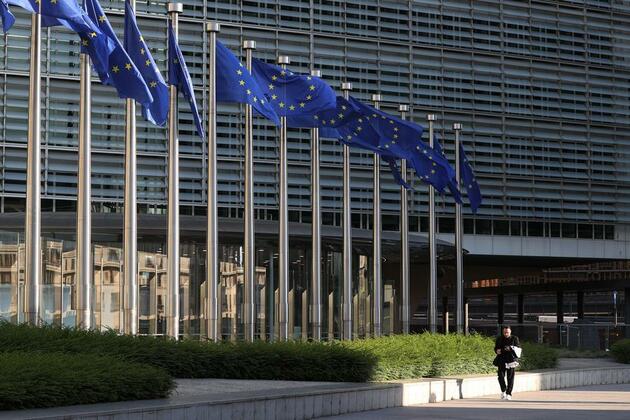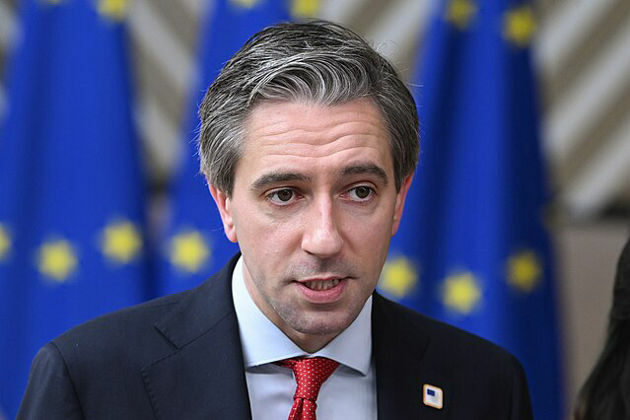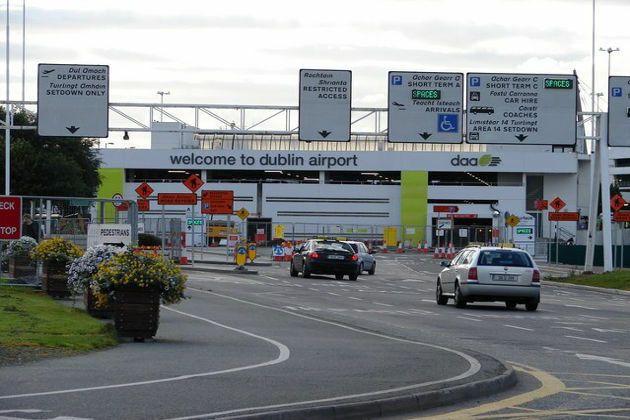EU states renew debate over children's social media access after deadly school attacks
Xinhua
20 Jun 2025, 21:45 GMT+10

by Billion Temesghen
As public support for a common social media "age of consent" gains momentum in European countries, legislation at the European Union (EU) level is coming into focus.
BRUSSELS, June 20 (Xinhua) -- A series of deadly attacks in Austria and France this month has reignited European debates over the exposure of children to social media, with several EU governments calling for stricter access rules for minors.
As public support for a common social media "age of consent" gains momentum in European countries, legislation at the European Union (EU) level is coming into focus.
SCHOOL VIOLENCE PROMPTS STRICTER REGULATION
On June 10, a 21-year-old former student entered the BORG Dreierschutzengasse secondary school in Graz and, in seven minutes, shot nine students and a teacher before taking his own life. Investigators said the assailant had glorified U.S. school shootings online and had posted from inside the school minutes before the rampage.
A week later, a 14-year-old student fatally stabbed a 31-year-old teaching assistant during a routine bag check at a school in Nogent, in north-eastern France.
Following the incident, French President Emmanuel Macron reiterated calls for tighter age restrictions on social media use. He said in an interview with France 2 that he would push the EU to ban access to social media platforms for children under the age of 15, warning that if the EU fails to act, France would consider national legislation.
Several other member states have voiced similar concerns. The Dutch government has already advised against the use of social media by children under 15 and recommended limiting screen time, keeping devices out of bedrooms, and encouraging outdoor play to foster "digital resilience."
The Norwegian government has also proposed raising the age of digital consent from 13 to 15 years, while still allowing parents to approve access for younger users. In Germany, children aged 13 to 16 are only allowed to use social media platforms with parental consent.
Meanwhile, the socialist-led coalition government of Spain is preparing a bill to raise the minimum age of opening a social media account from 14 to 16, mandate default parental controls on smartphones, and launch a national education campaign.
PUBLIC SUPPORT GAINING MOMENTUM
School violence has long been a common event in the United States, but now that it is also on the rise in Europe, public support for the restriction of social media use by minors appears to be growing.
According to a survey by the Youth Endowment Fund, which polled more than 10,000 teenagers aged 13 to 17 in England and Wales, 39 percent of respondents said social media made them more likely to carry a weapon. Nearly 64 percent of teens who admitted to committing violence in the past year said social media had played a role in their behavior.
A Spanish expert committee has proposed adding warning labels to digital devices to inform consumers of the health risks linked to social media use. Meanwhile, grassroots campaigns have rallied thousands of parents to delay giving smartphones to their children until the age of 16. "Each year you can delay giving a phone is a big win," said Nuria Gonzalez-Rojas, a spokesperson for the initiative.
A YouGov survey conducted during Nov. 22-26 last year showed that 77 percent of German adults "fully" or "somewhat" supported the idea of restricting access to social media platforms for users under 16 years old.
EU LEGISLATION IN FOCUS
Australia's announcement earlier this year of plans to introduce a minimum age of 16 for registering on certain social media platforms has added international weight to the discussion. Within the EU, momentum is building for a unified "age of digital adulthood."
A proposal led by Greece and backed by France and Spain would require minors to obtain parental consent to access platforms like TikTok, Instagram, and Snapchat.
Denmark, Slovenia, and Cyprus have also joined the initiative, which seeks to establish a unified minimum age for accessing social media across the EU.
However, European Commission spokesperson Thomas Regnier told Euractiv that decisions on the so-called "digital majority age," the age under which parental consent is required for data processing, remain the responsibility of individual member states under the EU's General Data Protection Regulation (GDPR). He added: "The EU will not consider an EU-wide social media ban."
That stance may evolve as Denmark prepares to assume the rotating presidency of the EU Council. Danish Digitalisation Minister Caroline Stage Olsen said Copenhagen will prioritize children's online safety during its term. She confirmed that Denmark will host an informal meeting of EU digital ministers on the issue on Oct. 9 and 10.
"The current EU regulation is not enough," Olsen said. She and her allies are advocating for a binding EU-wide "digital majority age" of 15, along with mandatory age verification measures. These would supplement the EU's existing Digital Services Act, which currently leaves much of the implementation to online platforms.
 Share
Share
 Tweet
Tweet
 Share
Share
 Flip
Flip
 Email
Email
Watch latest videos
Subscribe and Follow
Get a daily dose of Germany Sun news through our daily email, its complimentary and keeps you fully up to date with world and business news as well.
News RELEASES
Publish news of your business, community or sports group, personnel appointments, major event and more by submitting a news release to Germany Sun.
More InformationEurope Business
SectionLuxury giant Kering bets on outsider de Meo to lead turnaround
PARIS, France: Luxury group Kering's decision to tap Luca de Meo as its next chief is being seen as a daring but necessary attempt...
Hungary's Veto Casts Shadow Over EU Enlargement Talks
A day after the NATO summit in The Hague ends, EU leaders will take the short journey south to Brussels for their regular summer European...
Bulgaria and the Euro: What Happens to National Monetary Sovereignty
One of the most debated topics around Bulgaria's upcoming transition from the lev to the euro is whether the country is giving up its...
"India will have to navigate very cautiously": JNU Academician weighs in on Israel-Iran conflict
New Delhi [India], June 23 (ANI): As tensions escalate between Israel and Iran following US airstrikes on Iranian nuclear facilities,...
"India will have to navigate very cautiously": Ex JNU Academician weighs in on Israel-Iran conflict
New Delhi [India], June 23 (ANI): As tensions escalate between Israel and Iran following US airstrikes on Iranian nuclear facilities,...
US betrayed diplomacy by supporting Israel: Iran Foreign Ministry
Tehran [Iran], June 22 (ANI): Iran's Ministry of Foreign Affairs on Sunday said that the US betrayed has diplomacy by supporting Israel....
Europe
SectionIreland’s Deputy PM confirms return of evacuated nationals
DUBLIN, Ireland: Fifteen Irish citizens and their dependents have been evacuated from Israel due to the heightened state of alert over...
Dublin Airport given two years to fix passenger limit breach
DUBLIN, Ireland: Dublin Airport has received a warning for going over its allowed number of passengers. As part of a rule set by...
Critics say Özdağ case aims to silence Erdogan opponents
ANKARA, Turkey: A Turkish far-right politician went on trial Wednesday, facing charges of inciting public hatred—an episode critics...
Europe eases rates as Fed holds and Trump threatens tariffs
ZURICH, Switzerland: A wave of central banks across Europe surprised markets last week by lowering interest rates, responding to easing...
Swiss National Bank responds to strong franc and US trade doubts
ZURICH, Switzerland: The Swiss National Bank (SNB) lowered its key interest rate to zero percent on June 19 to respond to falling inflation,...
The Hague faces lockdown for global leaders' meet
THE HAGUE, Netherlands: The city that prides itself on being a beacon of peace and justice—home to institutions like the International...













